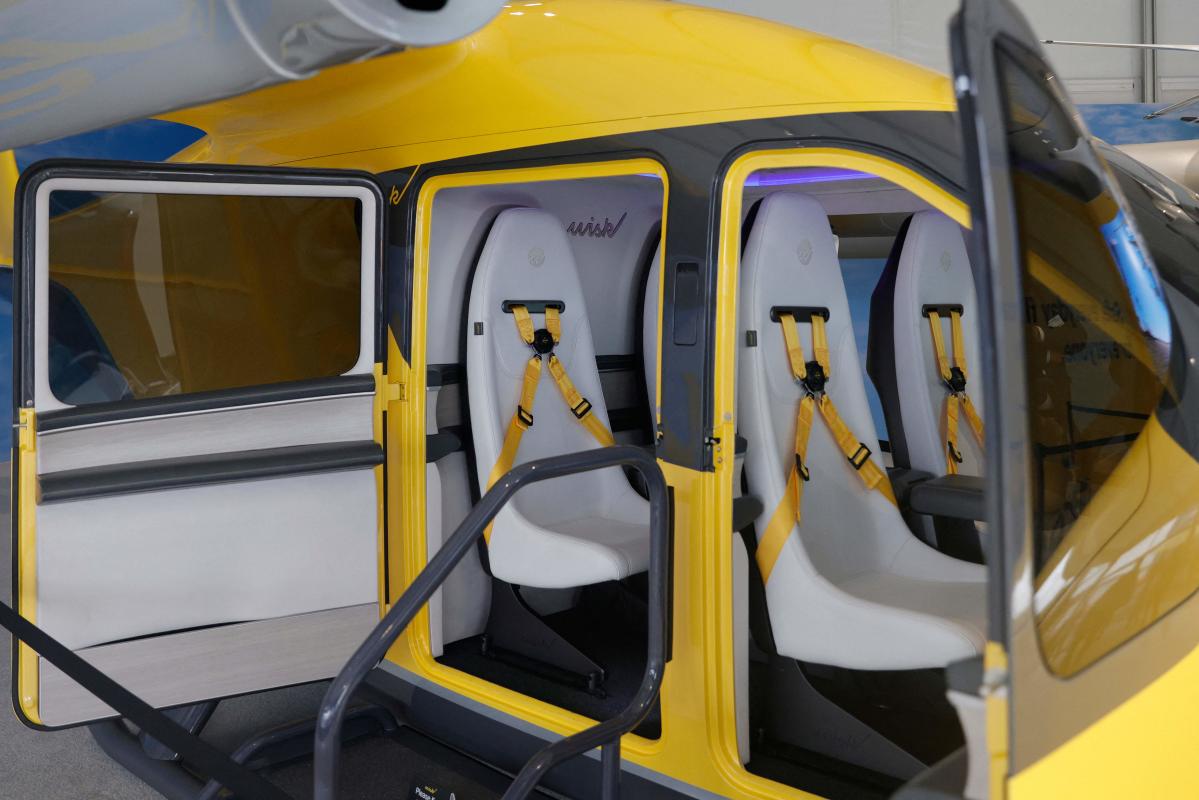While automakers – led by Tesla (TSLA) – have produced entire fleets of electric vehicles in recent years, aircraft manufacturers are much further away from electrifying the industry.
This makes it an industry goal to achieve net zero emissions by 2050 all the more elusive, energy experts say.
“Aviation is really hard to decarbonize,” Samantha Gross, director of energy security and climate initiative at the Brookings Institution, told Yahoo Finance. “You will never see a battery-powered 737 [plane] because the batteries are heavy.
That’s why the industry is working on a number of green energy solutions, such as sustainable fuels for larger, long-range aircraft. Meanwhile, electrifying small planes and helicopters are also looming on the horizon.
To date, a handful of startups have made big strides toward electrifying air travel. And their initiatives attract investments from the manufacturing industry, airlines and automobile giants.
United Airlines (UAL) signed a billion-dollar deal with Archer Aviation (ACHR) several years ago to buy up to 200 of the startup’s vertical takeoff and landing vehicles, or eVTOLs. Prior to the United deal, the California-based company partnered with European automaker Stellantis (STLA).
During an earnings conference call earlier this year, Adam Goldstein, co-founder of Archer, explained why the company invested in the automaker: “When I founded Archer, I knew from watching the industry electric vehicles, that developing the capacity to manufacture our aircraft in high volume was a necessity perhaps the No. 1 factor in our future success, alongside aircraft design and certification. -he declares.
Meanwhile, Toyota (TM) and Delta (DAL) Airlines have backed Joby Aviation (JOBY), based in Santa Cruz, California. The startup’s eVTOLs can travel up to 100 miles on a single charge, or two round trips between JFK Airport and downtown New York. The company has already book one of its aircraft to the US Air Force for testing and training as part of a larger contract with the US Department of Defense.
French plane maker Airbus (AIR.PA) has an internal unit working on its own electric air taxi prototype, with a delivery schedule at the end of this decade.
Last year, U.S. aircraft manufacturer Boeing (BA) became the sole owner of Wisk Aero, a Mountain View, Calif.-based startup that works on eVTOLs. Boeing invested $450 million in the company in 2022.
“What they [startups] what we’re doing today: They’re collecting data on how you operate one of these aircraft in an all-electric environment,” said Dave Shilliday, vice president and general manager of advanced air mobility at Honeywell (HON) . The company manufactures motors and other internal components for traditional and electric aircraft.
The Federal Aviation Administration has not yet fully certified the commercial use of electric planes in the United States, but Archer and Joby hope to launch them commercially in 2025.
Autonomous air taxis
Wisk is working on a fully autonomous air taxi since 2010. The startup’s “Generation 6” has a range of 90 miles and can carry four passengers and their carry-on luggage. There are no pilots on board, but flights are supervised by humans on the ground.
Wisk recently announced an agreement with the city of Sugar Land, Texas, to develop infrastructure that would ultimately enable Wisk’s autonomous air taxi operations in the Greater Houston area.
The company says its goal is to make the service affordable for everyone, from students to professionals. “A trip on Wisk’s plane will be comparable to the cost per mile of a basic ride-sharing service,” a spokesperson said.
It’s unclear when Generation 6 will receive certification to fly commercially, but the company has already conducted about 1,700 test flights across multiple generations of aircraft.
Hybrid aircraft
Just as hybrid cars have become an intermediate step towards all-electric for the automobile industry, the aviation industry is gradually moving to electric.
One example is Horizon Aircraft (HOVR), based in Ontario and Canada, which is currently working on a 15-foot-long hybrid eVTOL, initially intended for use by municipalities and emergency situations such as hospital transports.
“Think about it [the hybrid] as a very practical gateway to a future where all-electric aircraft will make much more sense,” said Brandon Robinson, co-founder and CEO of Horizon Aircraft.
The former Canadian fighter pilot believes cost-effectiveness will drive more hybrid solutions in the short term.
“When you burn less fuel per unit kilometer, you…



